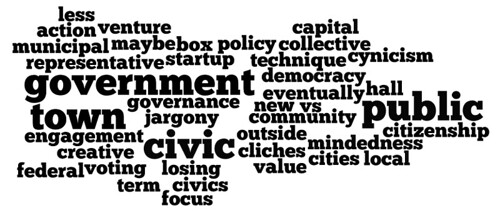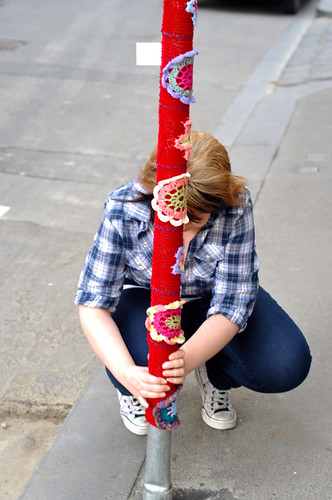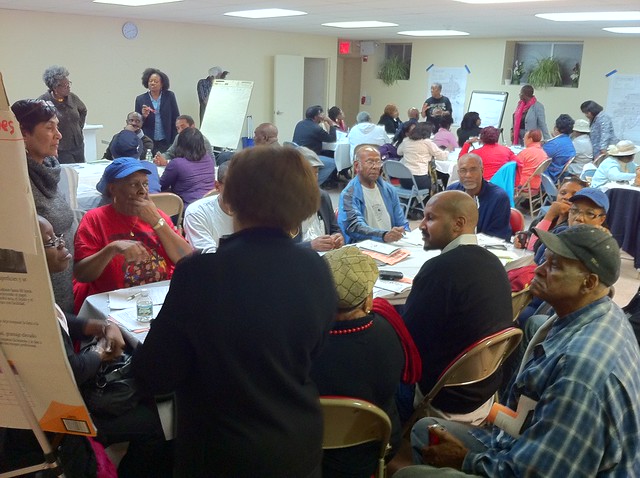Civic Innovation: a New America-wide conversation
Blog Post
June 2, 2014

Are community tool libraries (shared work equipment, like that pictured above) a civic innovation? Image by slobikelane.
As part of our new approach to civic innovation, we recently gathered together staff from across New America to unpack and explore the intersections between "civic," "innovation," and our core programs. In addition to introducing the Civic Innovation team’s work to the rest of the organization, this roundtable was an opportunity to practice what we preach and dig into an interdisciplinary understanding of what innovation is, where it’s found, and what it’s social impact potential could be.
The session began with a popcorn brainstorm around the words “civic” and “innovation.” Our goal was to get concrete about terms that all-too-often fly around without reflection, to identify common themes, and spot differences in interpretation. Some comments from our colleagues around “civic” include: collective action, local focus, and positivity (or, at least, “less cynical” than concepts like “politics”). “Innovation” implied: creativity, new techniques, and lost value due to overuse. Both terms also inspired commentary on public activity and problem-solving and an equal focus on both process and platforms that support these activities.
We then dug deeper, asking each participant in the roundtable to come up with a few examples of “civic innovations” that they knew of in general, in their field, or that they wanted to see in the world. The results were fascinating, spanning election monitoring platforms, public education itself, and some uses of yarn bombing, a form of street art that involves wrapping object with yarn, currently at use in DC to unify neighborhoods. (Get a glimpse of what yarn-bombing looks like in Melbourne, Australia below.) When one of our colleagues offered the web app “I Paid a Bribe” as an example, another countered that bribery itself might count as a way a community might respond to an unresponsive economy.

Low levels of trust in government were expressed as a critical challenge to civic innovation, for while civic innovation does not necessarily require direct engagement with government, trust impacts how and whether governments can participate in community activity (and whether the community will participate in innovations attempted by the government). Other themes highlighted include activities that make previously closed systems open, support collective and networked activity, improve public processes, and create tangible social goods.
The most critical discussion topic, however, was about inclusion: Participants expressed concern that the most well-known civic innovation projects seem to privilege middle and higher income audiences. This is both a problem of design, with certain projects failing to evaluate who will be impacted by the “innovations” created (and how to involve that “who” in a non-trivial way from start to finish), and a problem of awareness -- a lack of research and storytelling about collaborative change happening in a variety of wealth, class, and economic contexts. To begin to address these issues, we need to work across sectors -- public, non-profit, private, and academic -- and share resources, expertise, and outreach strategies. (For example, what can we learn from how the education community is thinking about digital literacy and tech access that could help other social sectors?)

A full room in Flatbush, NY for a participatory budgeting session. Image by neotint.
Community-led interventions intended to improve our quality of life grounded in our communities are happening around us everyday, often just in our blind spots. As we continue to explore, internally and externally, the landscape of innovation, we’d love your help in keeping our eyes open. To that end, if you have a favorite civic innovation project or want to share how your community is thinking differently about process change, problem-solving, and civic engagement, please share with us through this quick form. Civic innovation is aimed to re-imagine and re-ignite civic life. By design, this requires collaboration, participation, and open dialogue -- which we look forward to continuing with you.